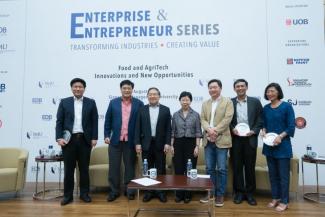
The fifth of a six-part Enterprise & Entrepreneur Series – Transforming Industries • Creating Value took place on 21 August 2018 (Tuesday) at the Singapore Management University’s Mochtar Riady Auditorium. Co-organised by The EDB Society and SMU, the forum examined the growth theme of Food and Agritech and the trends which could be exploited by technology, new business, research and collaboration models.
In his welcome remarks, Mr Lee Suan Hiang, President of The EDB Society commented that Singapore is in a strong position to do well in the food sector, having created strong brands such as Old Chang Kee and unique products such as chilli crab. Technology and change have been disrupting these businesses, thus presenting new opportunities and leverage from farm to fork.
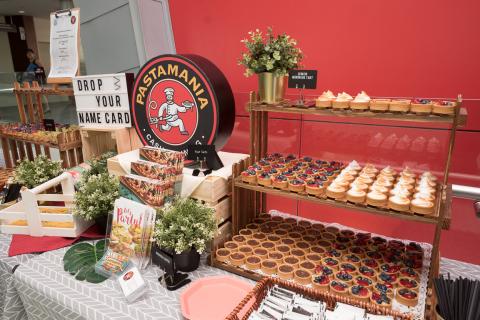
Opening the forum was Professor Lily Kong, SMU Provost and Lee Kong Chian Chair Professor of Social Sciences. She highlighted how conversations among Singaporeans typically revolve around food, from hawker culture to fine dining. She added, “Food is also serious business. Think in terms of food safety and national security, research into new food concepts, questions of the circular economy, consumer psychology and branding.”
The panel speakers for the evening were Mr Andrew Kwan, Group Managing Director of Commonwealth Capital Group; Dr Chua Nam Hai, Chief Scientific Advisor, Wilmar International Limited; Mr Han Sang Uh, Managing Director of Temasek Lifesciences Accelerator (TLA); Dr Kwan Lui, Founder of At-Sunrice GlobalChef Academy; and Mr Lim Kok Thai, Chief Executive Officer of the AgriFood & Veterinary Authority (AVA).
Mr Kwan spoke on advanced food manufacturing methodology and identified an integrated and inclusive platform as a necessity to enhance efficiency across a spectrum of food verticals. Commonwealth Capital Group has investments across the food vertical including barramundi fish farming, cold chain logistics, central kitchen, butchery, bakery and ice cream production; and manages food brands like PastaMania, Swissbake, Udders ice cream and The Soup Spoon.
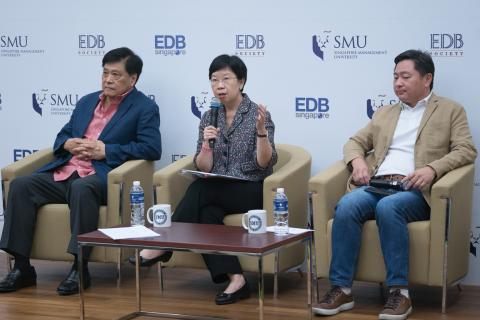
As Group Managing Director of the Singapore-owned investment holding company, Mr Kwan said that Commonwealth Capital Group is adopting technology into its animal husbandry practices. For example, a track and trace capability gives data on when the company’s farmed fish was harvested, checked for quality and airflown to different geographies.
Renowned biotechnology expert Prof Chua started with the adage, “You are what you eat.” Living and working in New York since 1971, Prof Chua returned to Singapore in 2016 to spearhead research related to agro-technology. In the face of climate change and growth in population, there was an increasing need to experiment and create solutions for a resilient food supply. He has advised government organisations, institutions and MNCs worldwide, including DuPont, Sumitomo Chemical Corporation and biotechnology-related entities.
Prof Chua underscored the importance of offering consumers healthier choices in the area of food and nutrition. For example, Wilmar, recognising global trends of consumers moving away from animal proteins, is collaborating with engineers to develop proteins that are more easily digested by groups of people such as the elderly and children. In response to the question on what he thought food would look like thirty years on, he said, “It is not likely to deviate too much from what we eat today. It’s part of our DNA.”
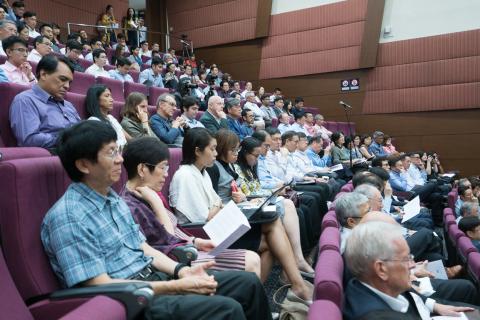
“Someone’s trash could be someone else’s treasure,” said Mr Han, in relation to how entrepreneurs who could identify a business case where technology is harnessed to minimise food wastage, could secure sources of funding to deploy research in such areas related to food supply and production.
Mr Han, who has extensive experience in venture capital investments, alternative asset management and start-up operations in Southeast Asia, Korea and USA, shared that there is an increasing need today to match science with capital, supporting its growth to critical mass. As an example, a company with an idea to grow strawberries indoors to improve food properties such as taste and colour, could approach TLA. TLA was set up in 2016 to commercialise research relating to advanced science and intellectual property of Temasek Life Sciences Laboratory, in the areas of "farm-tech", synthetic biology, and human/veterinary sciences. Mr Han added that as part of efforts to engage and build the local start-up ecosystem, TLA offers an attractive incubator support programme to early-stage companies in Singapore.
Dr Lui tackled the downstream aspects of the food value chain by addressing the technology being harnessed in chef training. An entrepreneur and educator, Dr Lui founded At-Sunrice GlobalChef Academy in 2001. She initiated a digital learning platform for professionals in the food sector, with modular and bite-sized programmes well-suited to meet the training needs of individuals. At-Sunrice has launched specialist diplomas to create new pipelines of food services professionals, and also developed licensing programmes for secondary and high schools which include e-learning modules, certification tests, and internship opportunities.
Mr Lim echoed Prof Kong’s comments of food being a topic close to the hearts of Singaporeans. He briefly shared on the current work of AVA as a regulator entrusted with the mission to ensure a resilient supply of safe food, safeguard the health of animals, fish and plants, as well as facilitate agri-trade for Singapore. With the world population projected to rise exponentially, global food supply would need to grow in tandem. Yet about a third of the world’s arable land and fish species are being depleted.
Mr Lim stressed that with AVA becoming the Singapore Food Agency (SFA) in April 2019, regulatory processes would be better streamlined. SFA would also be looking into how to enhance the productivity of increasing food production and enhancing the nutrition of food through research and innovation. This would address the need to diversify Singapore’s food sources, strengthen the nation’s food security and safety, as well as ensure citizens’ access to a resilient supply of nutritious food at affordable prices.
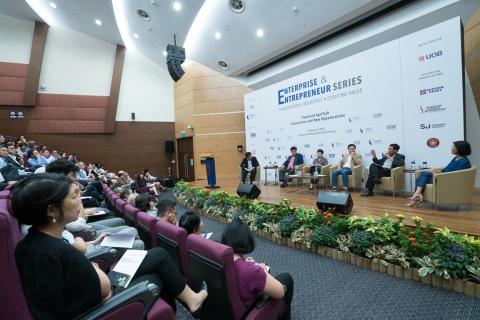
Prof Kong commented on how the discussions had painted a vividly different picture of today’s farmer. “Instead of toiling under the hot sun, today’s farmer could be working on algorithms on his laptop.” The power of technology to create future food trends and to offer consumers an entirely new range of choices, was certainly clear from the discussion.
More than 200 guests comprising business leaders, entrepreneurs, government officials, EDB alumni as well as SMU faculty, staff and students attended the forum.

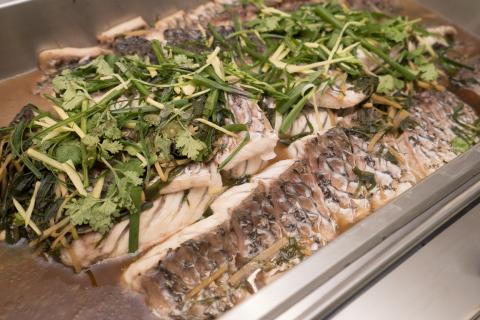

Click on the video to view the forum in full.
About the Enterprise & Entrepreneur Series
The Enterprise & Entrepreneur Series aims to draw insights from inspiring entrepreneurs and industry leaders, explore how Singapore can exploit new opportunities leveraging on megatrends and growth themes, as well as to create a platform for sharing, learning and networking among business trailblazers with aspiring young entrepreneurs. The Series was launched on 31 January 2018 by Mr Heng Swee Keat, Minister for Finance. This initiative is supported by the Economic Development Board (EDB). Stay tuned for the final instalment of the Enterprise & Entrepreneur Series which takes place on 16 October 2018 at SMU.
[Featured photo: (from left) Mr Han Sang Uh, Managing Director of Temasek Lifesciences Accelerator; Dr Chua Nam Hai, Chief Scientific Advisor, Wilmar International Limited; Mr Lee Suan Hiang, President of The EDB Society; SMU Provost Prof Lily Kong; Mr Andrew Kwan, Group Managing Director of Commonwealth Capital Group; Mr Lim Kok Thai, CEO, AgriFood & Veterinary Authority; and Dr Kwan Lui, Founder of At-Sunrice GlobalChef Academy; at the Enterprise & Entrepreneur Series on 21 August 2018.]